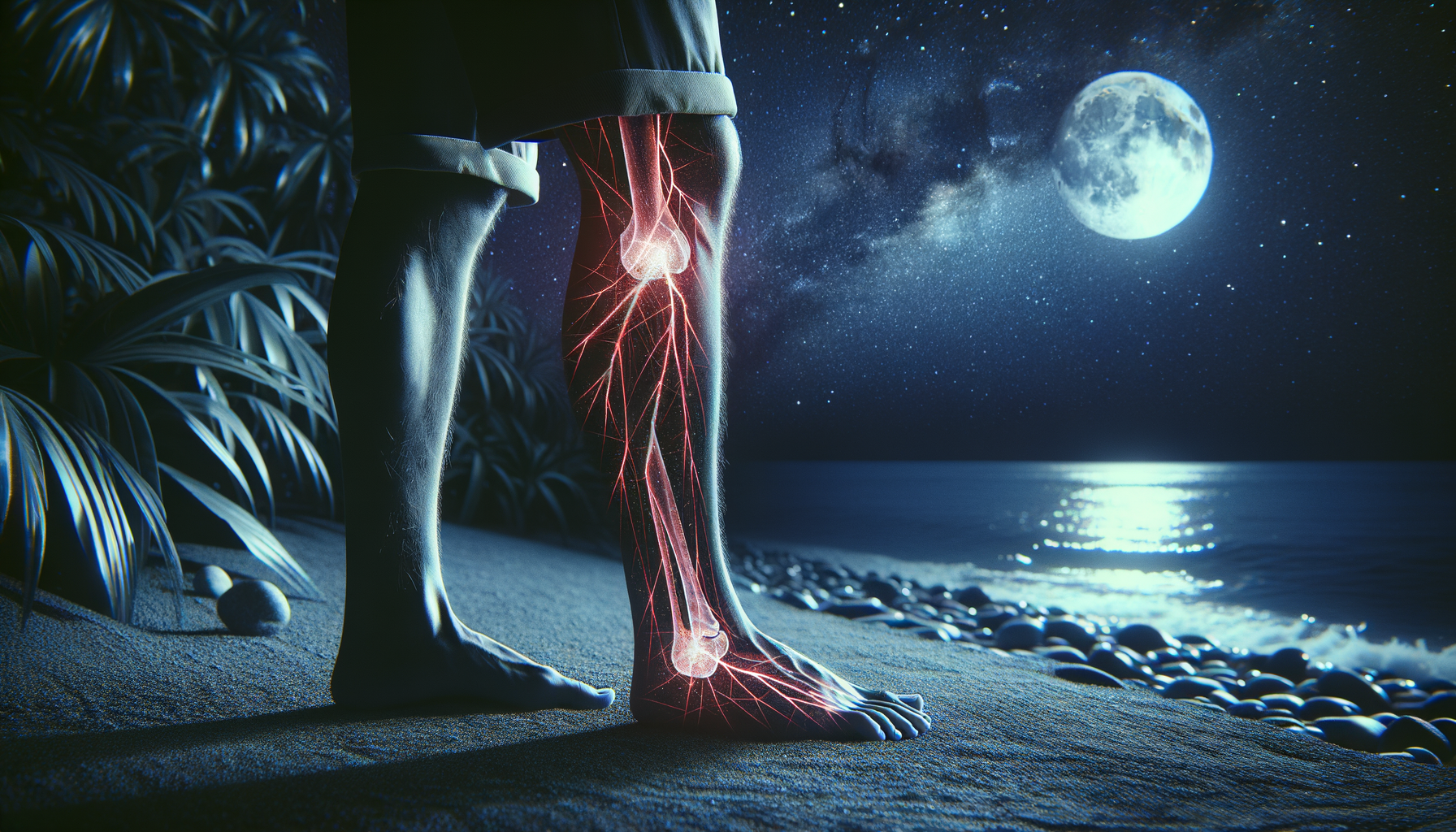Understanding Nighttime Leg Pain
Nighttime leg pain can be a distressing experience, disrupting sleep and affecting overall well-being. These pains, often referred to as nocturnal leg cramps, can occur due to various reasons such as muscle fatigue, dehydration, or even an underlying medical condition. Understanding the root causes is crucial for effective management. For many, these cramps are sudden, involuntary contractions of the muscles in the legs, typically affecting the calf muscles. However, they can also occur in the thighs or feet.
Several factors contribute to nighttime leg pain. One common cause is prolonged standing or sitting, which can lead to muscle fatigue. Additionally, inadequate hydration and low levels of minerals like potassium, calcium, and magnesium can exacerbate the condition. It’s also worth noting that certain medications and medical conditions, such as diabetes or peripheral artery disease, might increase the likelihood of experiencing these cramps.
Identifying the cause of your leg pain is the first step towards finding relief. Keeping a journal to track when cramps occur and any potential triggers can be helpful in managing the condition. Consulting with a healthcare professional is advisable if the pain is severe or persistent, as they can offer tailored advice and treatment options.
Practical Tips for Relief
There are several practical strategies that can help alleviate nighttime leg pain, allowing you to wake up refreshed. Regular stretching exercises, particularly before bed, can help prevent cramps by keeping muscles flexible and reducing tension. Focus on stretches that target the calf muscles and hamstrings, as these are the most commonly affected areas.
Maintaining adequate hydration is another essential step. Drinking enough water throughout the day ensures that your muscles are well-hydrated, reducing the risk of cramps. Additionally, incorporating foods rich in essential minerals such as bananas, sweet potatoes, and spinach into your diet can help maintain balanced electrolyte levels.
Consider adjusting your sleeping position to reduce pressure on your legs. Elevating your legs slightly with a pillow can improve blood circulation, which may help in preventing cramps. For those who experience frequent cramps, using a heating pad or taking a warm bath before bed can relax muscles and provide relief.
When to Seek Professional Help
While many cases of nighttime leg pain can be managed with lifestyle changes and home remedies, there are instances where professional medical advice is necessary. If you experience severe pain that does not improve with self-care measures, it may be indicative of an underlying health issue that requires attention.
Conditions such as nerve damage, blood clots, or chronic venous insufficiency can cause persistent leg pain and should be evaluated by a healthcare provider. Additionally, if you notice symptoms like swelling, redness, or warmth in the affected area, it is important to seek medical evaluation to rule out serious conditions.
Healthcare professionals can offer a range of treatments, from physical therapy to medications, depending on the underlying cause of the pain. They can also provide guidance on appropriate exercises and lifestyle modifications tailored to your specific needs, ensuring you find the most effective relief from nighttime leg pain.




Leave a Reply